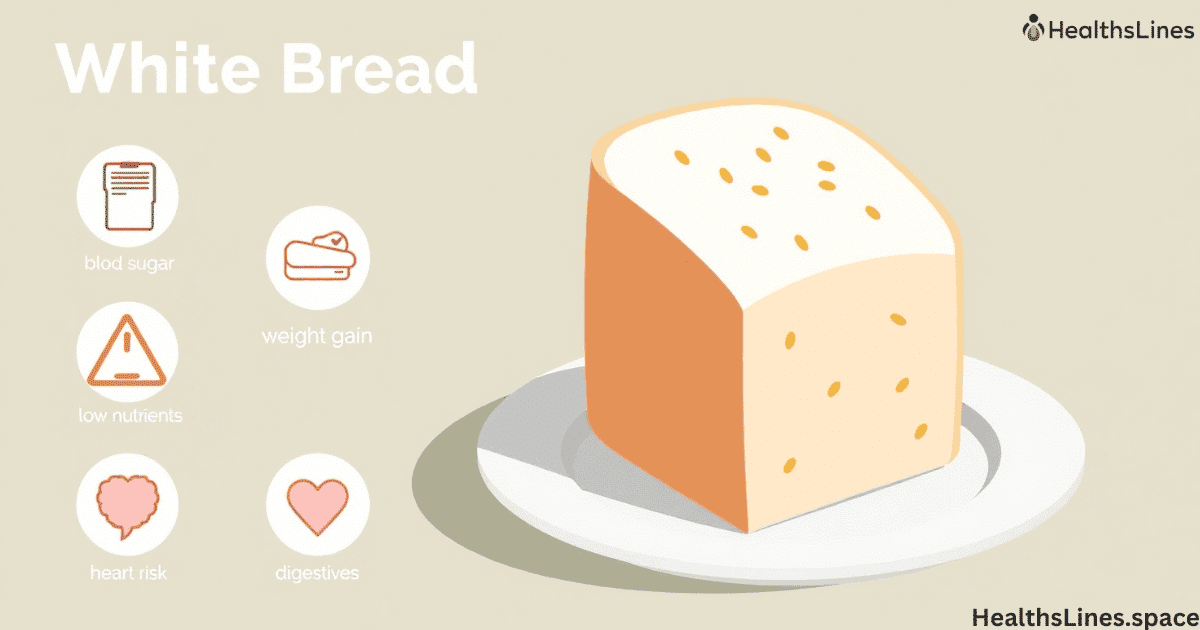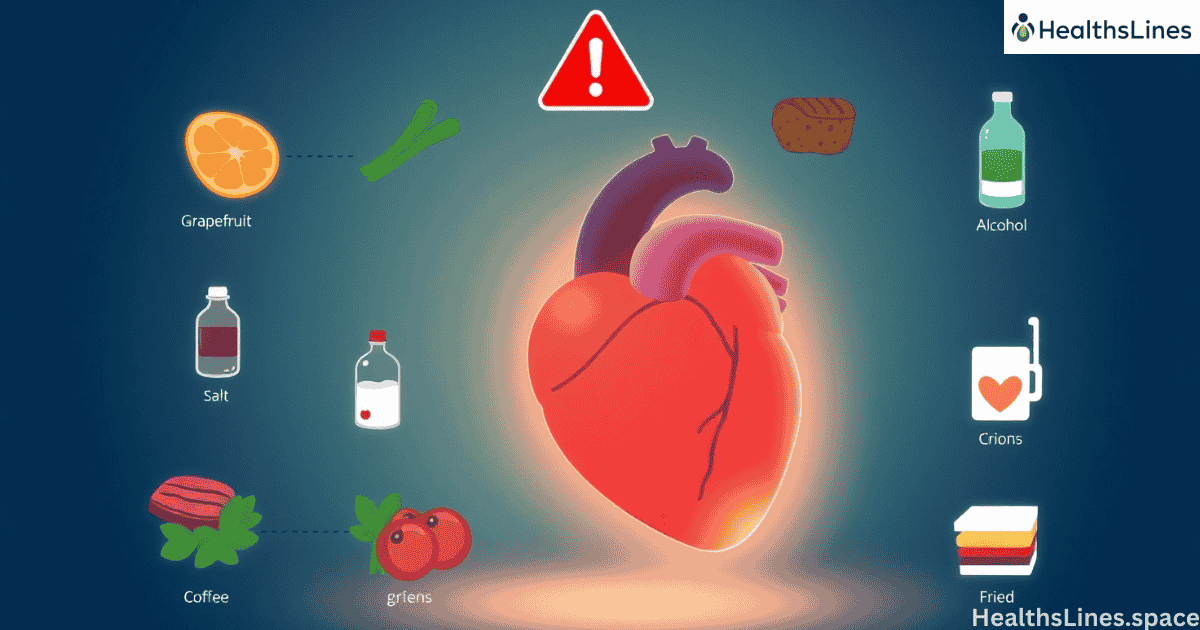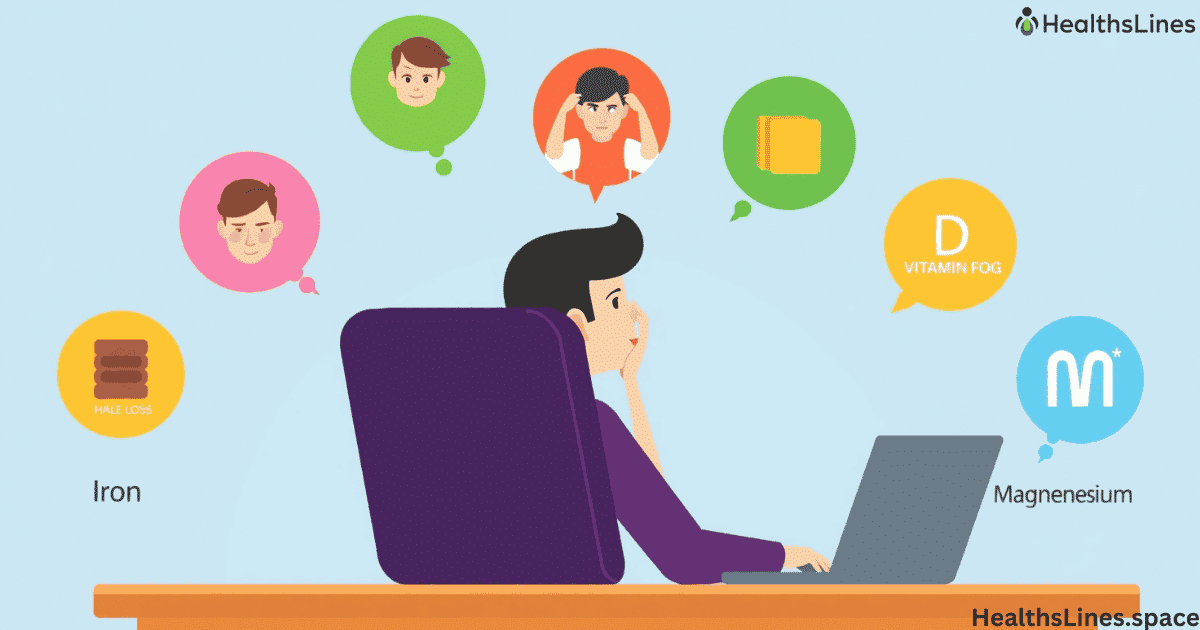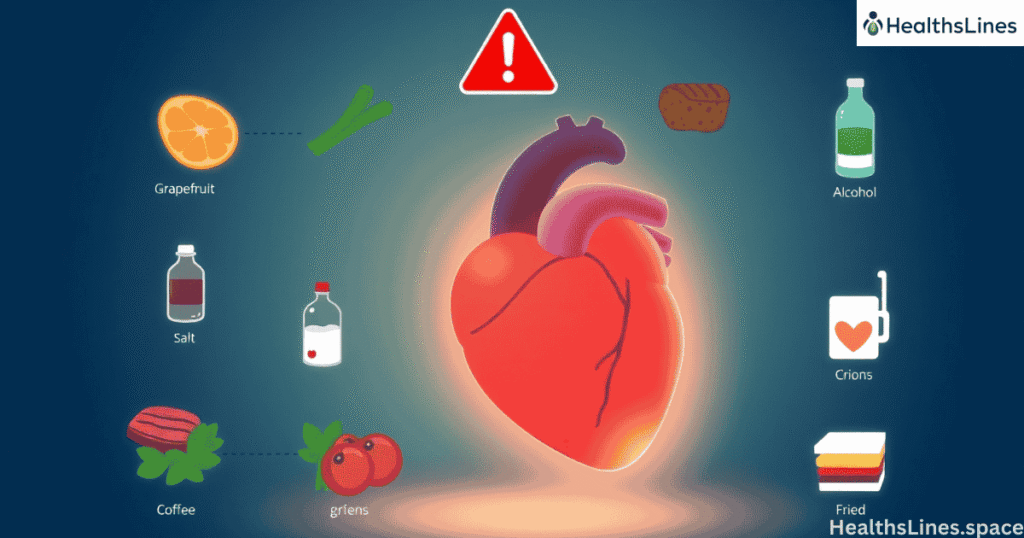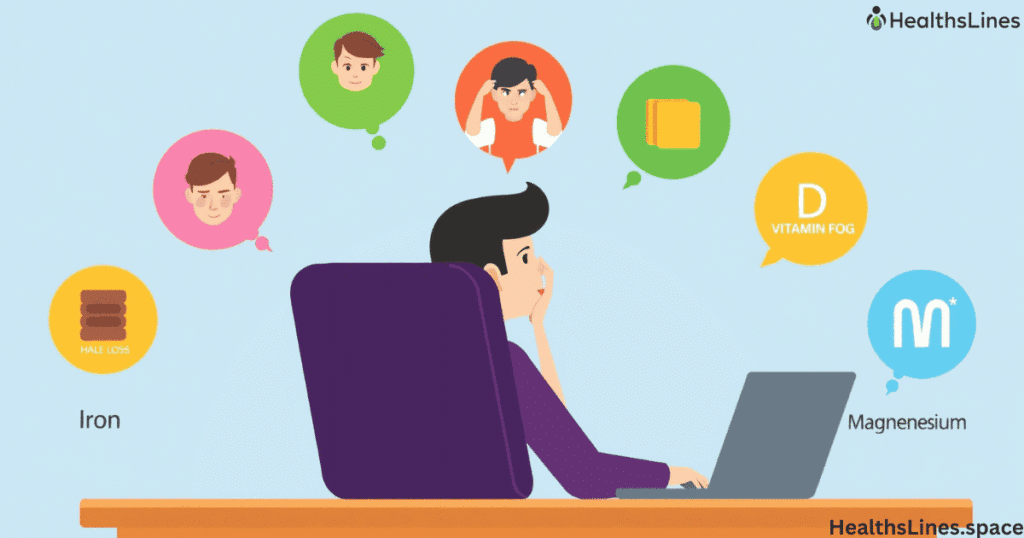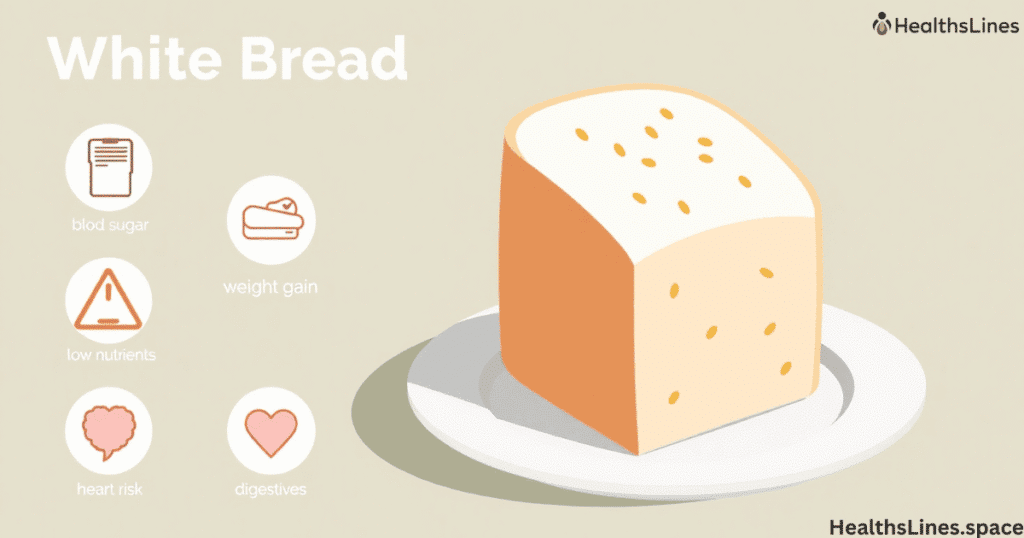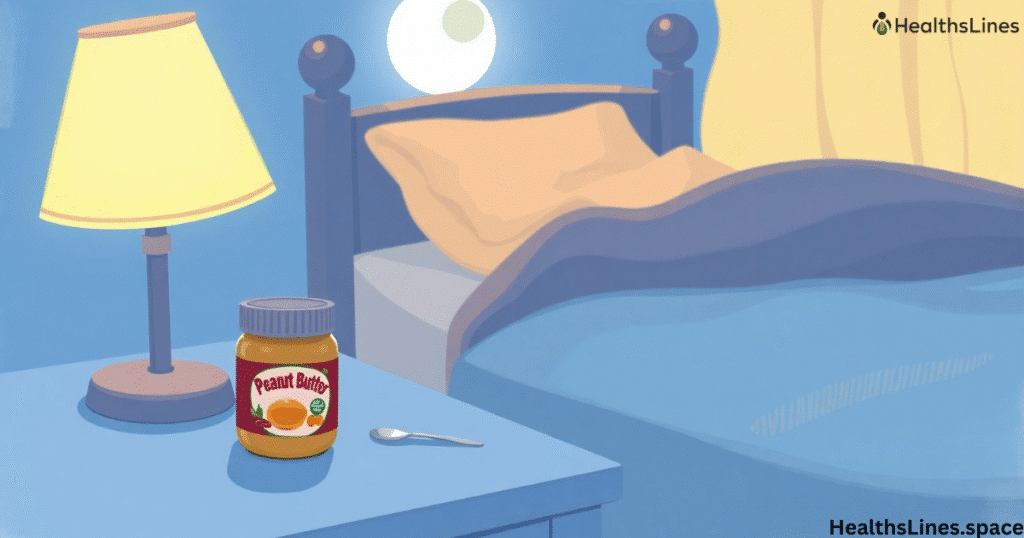White bread is soft, tasty, and easy to find. Many people eat it for breakfast, lunch, or dinner without thinking twice. But have you ever wondered, is white bread bad for you when you eat it every single day? The answer is yes. While it fills your stomach for a short time, it does not give your body what it truly needs. Eating too much of it can bring serious health risks of eating white bread.
This article explains the dangers of eating white bread daily in simple words. We will talk about how it can raise blood sugar, upset your digestion, add extra weight, hurt your heart, and cause you to miss out on key nutrients. You will also see clear comparisons of white bread vs whole grain bread, along with better bread choices like sourdough and sprouted bread. The goal is not to scare you but to help you understand how something so common can slowly harm your health.
Spike in Blood Sugar and Diabetes Risk
One of the most important refined white bread health risks is how it raises your blood sugar very fast. White bread is made from refined flour. This flour is missing fiber and digests quickly. That means it turns into sugar in your blood almost as soon as you eat it. Foods like this are called high glycemic index foods, and white bread is near the top of the list.
When you eat it often, your blood sugar goes up and down like a roller coaster. These blood sugar spikes from bread make you feel full for a short time but then hungry again soon. Over time, this can lead to insulin resistance and white bread problems, where your body stops responding well to insulin. Doctors say this is one of the first steps toward type 2 diabetes risk foods causing disease.
A Harvard study showed that people who ate many slices of white bread or refined grains each day had a much higher chance of getting diabetes than those who ate whole grains. This is because the fiber in whole grains slows down digestion and keeps blood sugar steady. White bread, on the other hand, gives your body sugar shocks again and again.
Lack of Fiber and Poor Digestive Health
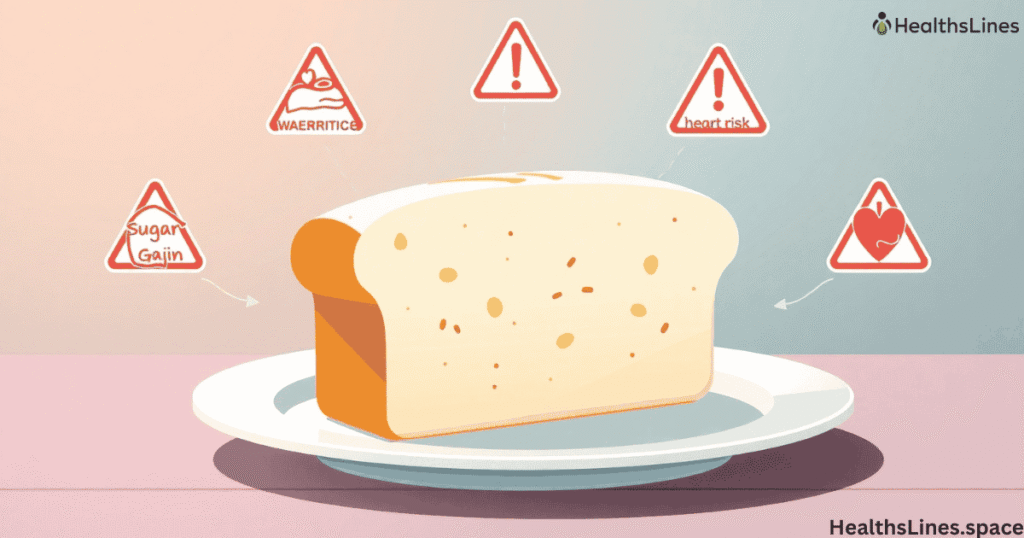
Another problem is the lack of fiber in processed bread. When flour is refined, the bran and germ are removed. These parts hold most of the fiber, vitamins, and minerals. What is left is mostly starch. Without fiber, digestion does not work well. Many people who eat white bread daily suffer from white bread and constipation because their intestines do not have enough bulk to move food smoothly.
Fiber is also food for the friendly bacteria in your gut. These bacteria play a big role in digestion and immunity. A diet with little fiber weakens these bacteria, which causes refined flour and gut health problems. Whole grain bread, sprouted bread, and sourdough help build a healthy gut, but white bread does the opposite.
Doctors warn that people who rely on white bread for most of their meals often face white bread and digestion problems like bloating, gas, and irregular bowel movements. Over the long term, not getting enough fiber may even raise the risk of colon disease. Choosing whole grains vs white bread is not just about taste; it’s about how well your body handles food each day.
Weight Gain and Obesity Concerns
Eating white bread daily can also make you gain weight. The reason is simple. White bread is a refined carb, which means it digests very quickly and leaves you hungry again. This cycle makes you eat more than you need. Nutritionists call this a trap of obesity and refined carbohydrates.
Research shows that people who eat lots of white bread are more likely to gain belly fat from white bread. This happens because the extra sugar that your body doesn’t use gets stored as fat, especially around the stomach area. Refined grains and weight gain go hand in hand, and white bread is one of the main culprits.
A case study from Spain found that adults who ate two or more servings of white bread each day had a 40% higher chance of being compared to those who ate less. That’s a huge number. Whole grain bread, on the other hand, fills you up for longer and lowers the risk of overeating. So, if you are trying to stay in shape or lose weight, daily white bread is not your friend.
Increased Risk of Heart Disease
The white bread and heart disease risk is something most people don’t think about. But science shows a clear connection. Eating a lot of refined carbs like white bread raises triglycerides and refined carbs levels in the blood. High triglycerides are fats that increase the risk of clogged arteries.
At the same time, eating too much white bread lowers good cholesterol (HDL) and raises bad cholesterol (LDL). This imbalance of LDL vs HDL cholesterol and bread intake puts stress on your heart. Over time, this can lead to heart attacks or strokes.
White bread is also linked to metabolic syndrome and diet problems. Metabolic syndrome is a mix of issues: high blood sugar, high blood pressure, extra belly fat, and bad cholesterol. People who eat white bread daily have a higher chance of developing this condition, which greatly raises heart disease risk.
| Bread Type | Fiber | Glycemic Index | Heart Health Impact |
| White Bread | Very Low | High | Raises risk of heart disease |
| Whole Grain Bread | High | Moderate | Protects arteries and heart |
| Sourdough Bread | Moderate | Lower | Supports cholesterol balance |
| Sprouted Bread | High | Lower | Boosts heart protection |
As you can see, eating white bread every day harms your heart, while other bread options work like a shield.
Nutrient Deficiency Over Time
One of the least known but very serious white bread side effects is nutrient loss. White bread gives you calories but very few vitamins or minerals. During refining, many vitamins lost in refined flour include vitamin B, magnesium, iron, and zinc. Some companies add back a little, but enriched bread vs whole wheat bread is no match. Whole wheat still has natural nutrients, while white bread is mostly empty starch.
Eating white bread daily can lead to nutrient deficiency from refined grains. This shows up in many ways, such as tiredness, weak immunity, poor skin, and even weaker bones over time. Your body needs real fuel, not just fast-burning starch.
One nutritionist put it well: “Refined bread feeds your hunger, but whole grains feed your body.” That is the truth. If your diet has too much white bread, you may slowly lose out on the very vitamins and minerals that keep you strong. This is why experts recommend eating sprouted bread nutrition or whole grains instead. They provide protein, antioxidants, and lasting energy.
Healthier Alternatives to White Bread
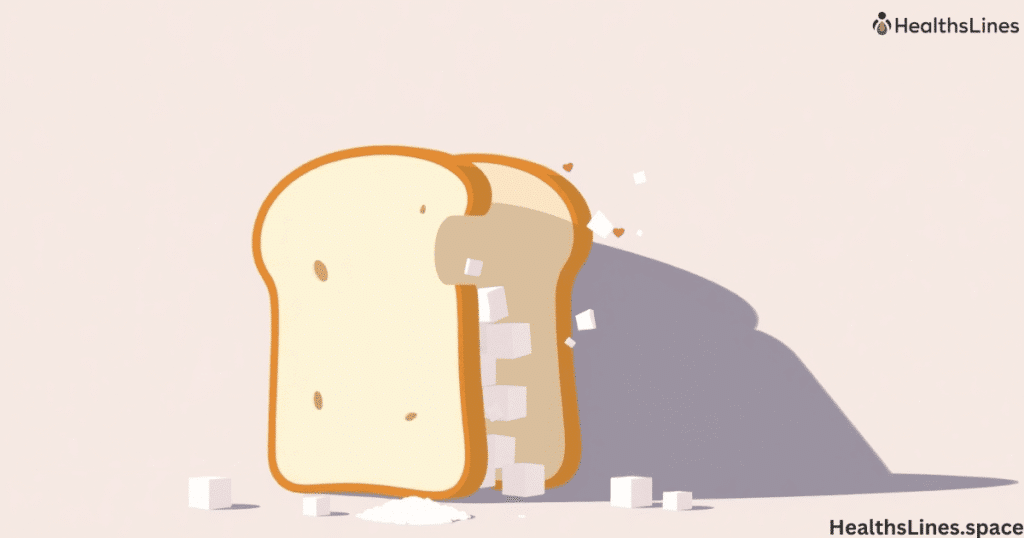
Now that you know the refined white bread health risks, the next step is finding better choices. Luckily, there are many healthier bread alternatives that taste good and keep you full.
Whole grain bread benefits are clear. It has more fiber, vitamins, and minerals. It also lowers blood sugar spikes and supports gut health. Sourdough bread’s lower glycemic index makes it easier for your body to handle and is easier to digest for many people. Sprouted bread nutrition adds proteins and enzymes that give even more benefits.
| Bread Type | Fiber Level | Nutrient Value | Blood Sugar Effect | Digestion |
| White Bread | Very Low | Poor | High spikes | Weak support |
| Whole Grain Bread | High | Strong | Lower spikes | Good support |
| Sourdough Bread | Medium | Moderate | Gentle rise | Easier digestion |
| Sprouted Bread | High | Excellent | Lower spikes | Very strong support |
When you compare white bread vs whole grain bread, the choice is simple. Whole grains and sprouted breads bring real nutrition, while white bread mostly brings problems.
Conclusion
So, is white bread bad for you if you eat it every day? The evidence says yes. The health risks of eating white bread include blood sugar spikes, white bread and digestion problems, weight gain, white bread and heart disease risk, and loss of important nutrients. While it may be cheap and tasty, the long-term damage is too high a price.
The good news is that you don’t have to give up bread completely. You just need to switch to better options like whole grain, sourdough, or sprouted bread. These breads give your body fiber, vitamins, minerals, and steady energy. They cut down the dangers of eating white bread daily and help you stay healthier in the long run.
